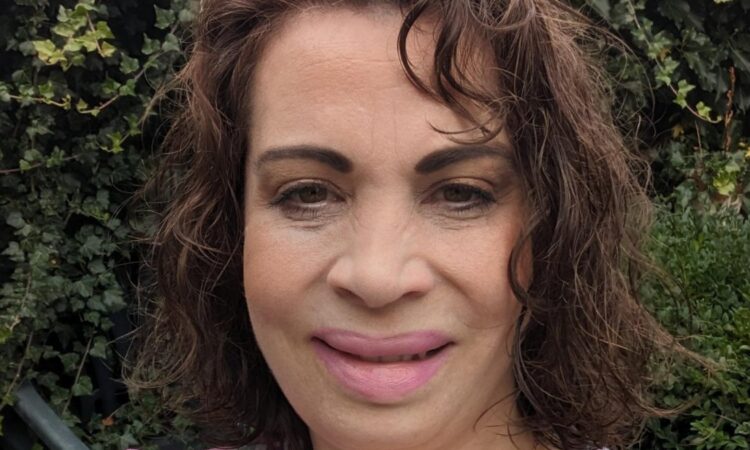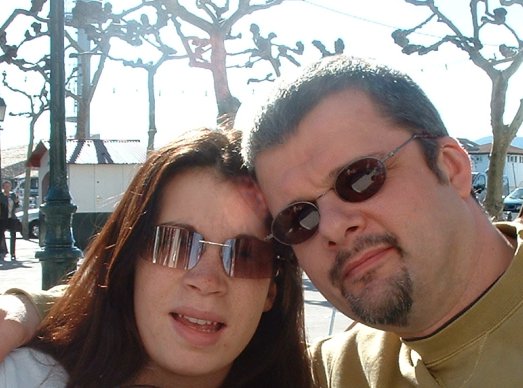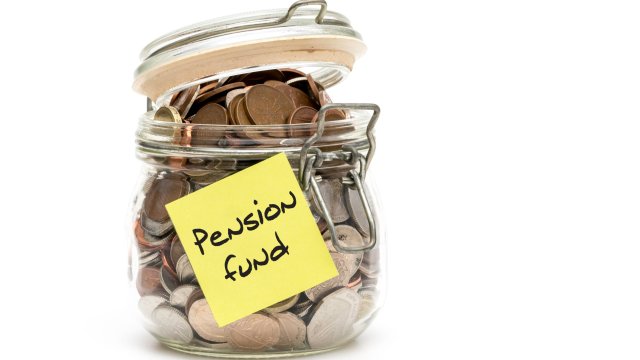
After selling their home and moving into a rental property, Annabelle and Simon Baugh are now worried that they will be unable to buy again.
The couple believed that selling their home 15 years ago would be a good financial move to help them get out of debt but have since worked out they are now around £150,000 out of pocket as a result.
They planned to rent temporarily but have been living in rental properties ever since as high house prices and mortgage rates scuppered their plans to buy again.
Annabelle, 45, said: “Looking back, I wish I’d never sold the house. If I’d kept it I would have still had some equity in it and it would have been something to fall back on.”
She hoped that property prices would fall while they were renting but house prices and mortgage rates didn’t move in the direction she expected.
Annabelle owned two properties in the west Midlands by the age of 25: a four-bedroom townhouse in Sutton Coldfield which she lived in with her husband Simon and their son Byron, as well as a three-bedroom terraced house in Erdington which she rented to students.
She had bought the rental as her first home for £40,000 when she was 20, taking out a £38,000 mortgage.
House prices had gone up five years later so she was able to remortgage and release some equity to use as a deposit to buy the £150,000 townhouse with a £110,000 mortgage.
She rented out the Erdington property for a few years, but when more landlords started offering student accommodation in the area, she found it harder to find tenants. So at 27, she sold that house, paid off some debt and used the remaining money to renovate her home.
But it was around that time things started to go wrong: Simon’s financial advice business was struggling, their household income plunged and they were using credit cards to pay their bills. Then came the financial crash of 2008, causing average UK property prices to fall by more than 16 per cent in a year.
Worried that their debt was spiralling, the couple sold their home, used the equity to pay off their credit cards and planned to rent temporarily. They hoped that when they were ready to buy again, prices would be lower.
Annabelle said: “We saw it as a fresh start and had an optimistic plan to save up a deposit and buy somewhere a bit smaller or in a different area. We thought that because the bubble had burst that house prices would keep going down.”
But that didn’t happen and instead, just months after the crash, house prices actually increased, rising 7 per cent in 2009, according to the Land Registry.
While prices were stagnant for a while after that, they picked up pace and over the past 15 years have increased more than 50 per cent. Much of the recent house-price momentum has been fuelled by cheap borrowing during the pandemic, which added £50,000 to the average house price over two years, according to Nationwide Building Society.
While mortgage rates are now higher than a year ago, property prices haven’t fallen at the rate that many expected. This has meant that buyers face average mortgage rates of more than 6 per cent while house prices are still high by historical standards.
To borrow the kind of sums needed to buy a property, most lenders now want two incomes. But the Baughs would struggle to afford a mortgage because Simon suffers with a chronic illness and can no longer work full time, so the couple now largely rely on Annabelle’s income from her job working for marketing agency Exposure Ninja.
If she had kept that first house, it would now be worth around £190,000 and Annabelle said she would have always had some equity in it.
By now she would have paid off the mortgage, meaning any rent she pays from now on is effectively her losing money.
As the home would have been worth around £190,000 and she bought it for £40,000, she has effectively lost £150,000 in profit.
Renting has also been stressful as they have had to move twice due to landlords selling up. “We had to move our son from his first primary school after one year, which meant he had to adjust at a new school,” she said.
“There is a constant fear about the lack of security and whether we would be able to find another property to rent in our price bracket and area. I also worry about being able to buy a house before I am 50 as I know it will be even harder to get a mortgage when I’m older.
“I hope one day we will be in a position to buy another house but renting is the only option at the moment.”

Is it a good idea to rent before buying?
Many homeowners need to sell a property to buy one, so buyers and sellers often end up being involved in a house-buying chain. The problem is that if anything goes wrong with a sale somewhere along the chain, the other transactions can fall through. So one of the main upsides of moving into rented property is that you break the chain, making your home more attractive to prospective buyers and meaning you may be in a better position to negotiate with sellers when you buy.
It could save you money too: the average rent in the UK is £1,163, cheaper than the average mortgage repayment of £1,285, according to property website Zoopla.
But there are downsides to moving into rented property, such as the costs for moving twice and storing furniture or belongings.
Sarah Coles, a personal finance expert from Hargreaves Lansdown, said: “You need to consider what would happen to house prices while you’re out of the market. If they fall, you could get a bargain. But if they keep rising, you might be priced out.”
She said one way around this is to rent for a very short period and negotiate break clauses in your tenancy agreement. That way you get the benefits of breaking the chain, without being out of the market for so long that something substantial changes in the interim. “But even then, there are no guarantees,” she said.
The rise in mortgage rates this year have meant some of those who chose to leave the housing market for a short time are now struggling to get back in.
Aaron Strutt from the mortgage broker Trinity Financial said: “The mortgage market is constantly changing and often not in a good way. It is fair to say many homeowners that own properties now would not qualify for the mortgage they currently have. So once you have a property you need to think very carefully before selling it.”







